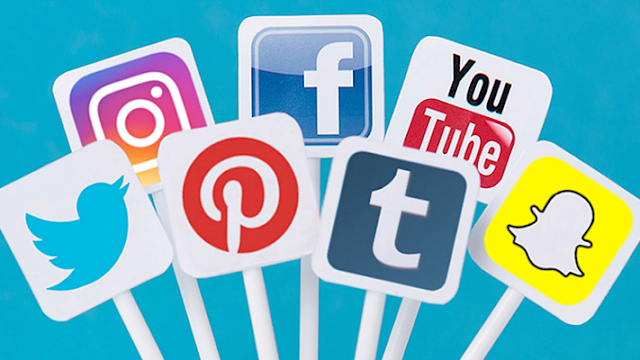8 Tips to Limit Your Risks On Social Media | Total Security
With the incredible amount of information stored and shared online, the risks on social media are more present than ever.
There's no denying that social media has made the world more connected. In most cases, this can also be considered a major step forward. But all of these new connections also make it easier to access information for businesses and individuals. When hackers and crooks get involved, this information can quickly become a problem.
However, you can no longer give up social media, nor can you continue to think that it is inviolable. So now is the time to take the necessary steps to protect your business against the most common social media threats. Here is where you could start:
Most Common Safety Risks on Social Media
Accounts left unattended
It's okay to use your brand name on all social media, even if you don't plan to use all of them. This will allow you to maintain a constant presence on these networks, making it easier for consumers to find you.
But it's also important not to overlook accounts that you don't yet use, or don't use often, if at all. Inactive social accounts are a prime target for hackers, who could take advantage of this to post fraudulent messages on your behalf.
Since they know the account is unmonitored, once they take control of it, they could harm your business by sending false information or cause problems for your subscribers by posting virus-infected links. And you won't even notice it until your customers come asking for your help.
Human Error
Everyone makes mistakes. In our fast-paced world, an employee can easily and unwittingly expose their business to online threats. Survey respondents that the most likely cause of a cybersecurity breach is usually a staff member.
After all, you just have to click the wrong link or download the wrong file to do a lot of damage.
Third-party applications
Even if you secure your accounts, hackers can still access them through vulnerabilities in third-party applications that integrate with social networks.
For example, hackers gained access to Forbes and Amnesty International's Twitter accounts using a flaw in Twitter Counter, an application used to analyze Twitter.
Phishing and Other Scams
Phishing scams use social media to trick users into sharing their personal information (bank details, passwords, or even business information).
Victim of theft, a con artist used the brand name and other alternatives to create contest pages. Participants then had to pay to participate in the competition and therefore provide their bank details and other information.
Account Theft
The number of fraudulent support accounts on social media has doubled since 2017. These accounts can target your customers and trick them into sharing their confidential information, ruining your reputation in the process.
Account theft also allows impostors to defraud your employees by asking them to hand over their login credentials to your computer system.
Malware and Hacking
Hackers are getting trickier on social media. They have already managed to hack the Twitter accounts of Kylie Jenner, Mark Zuckerberg, and several large groups, such as the Lactalis group here.
But that doesn't stop us from using our favorite social media.
However, for brands, the risks are higher as many people use social media in the office, whether for work or for personal use.
Unsecured Mobile Phones
Most people use their smartphones to surf social networks. After all, all you need to do is tap an app to access your account.
This is no problem as long as your phone is in your possession. But in the event of theft or loss, a malicious person can then access your accounts without any difficulty. It will then have no trouble scamming your contacts with phishing or malware.
The best antivirus total security would be to protect the device with a password, but more than half of smartphone owners don't lock their phones.




Comments
Post a Comment